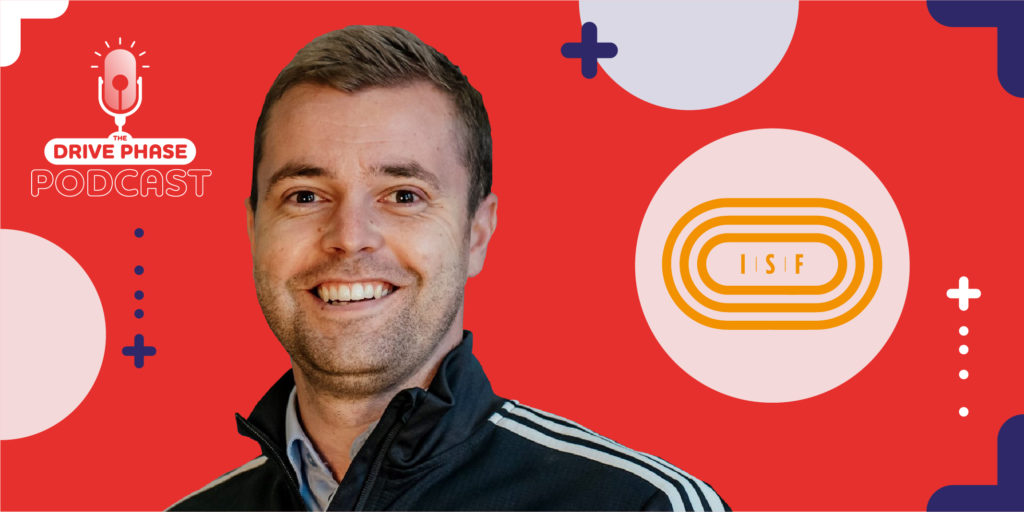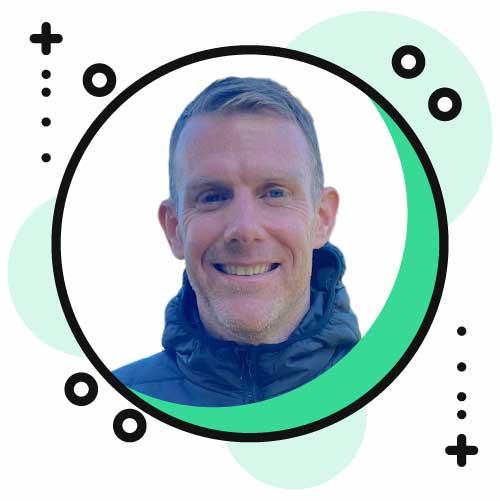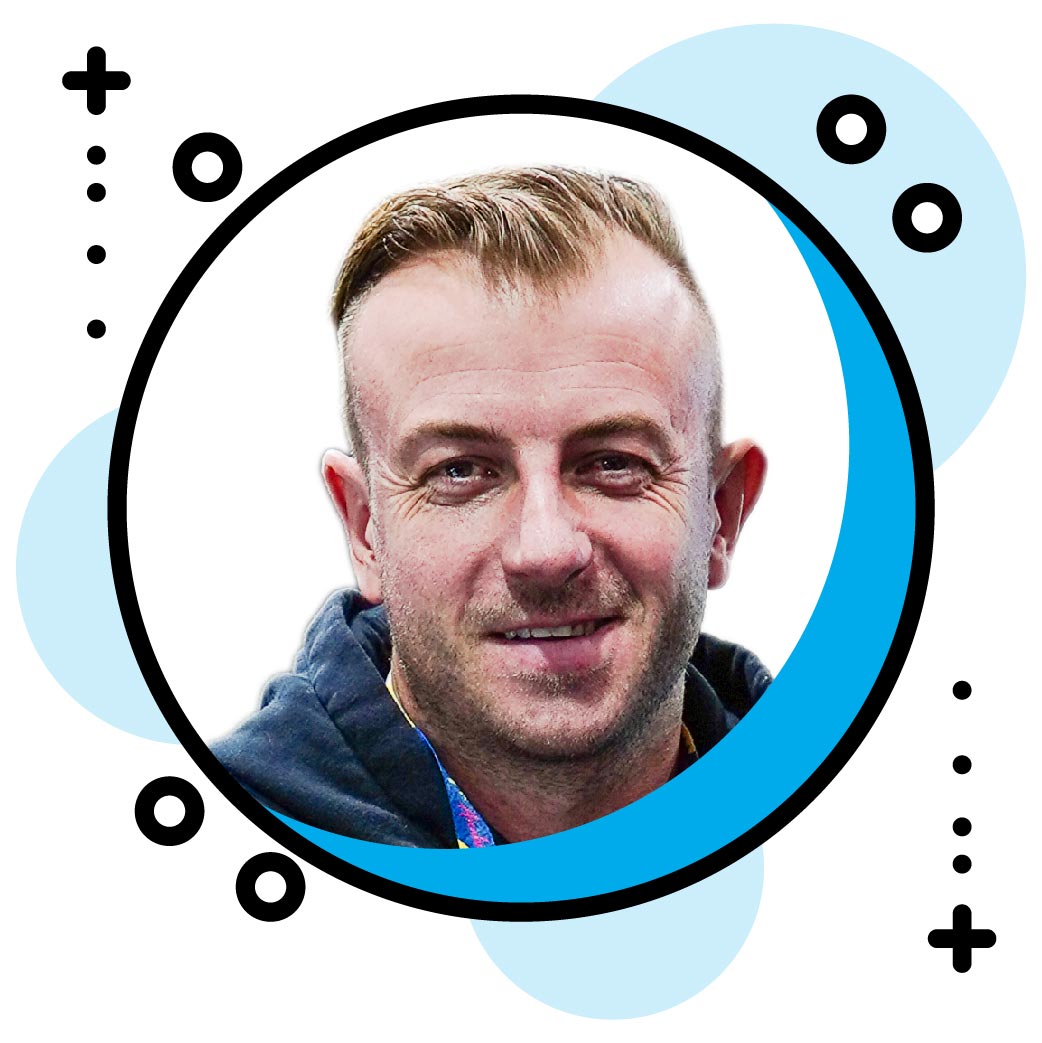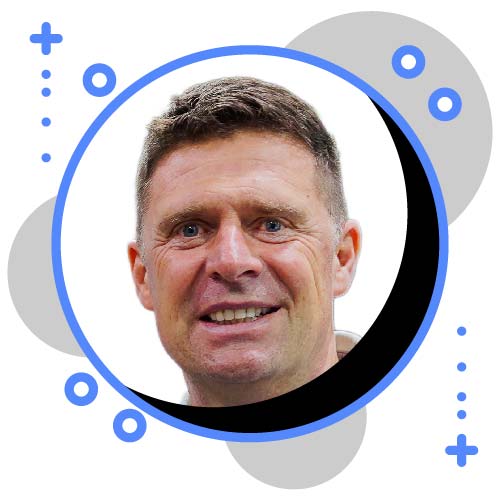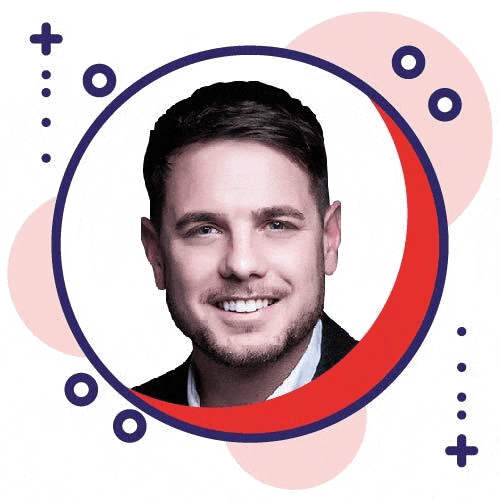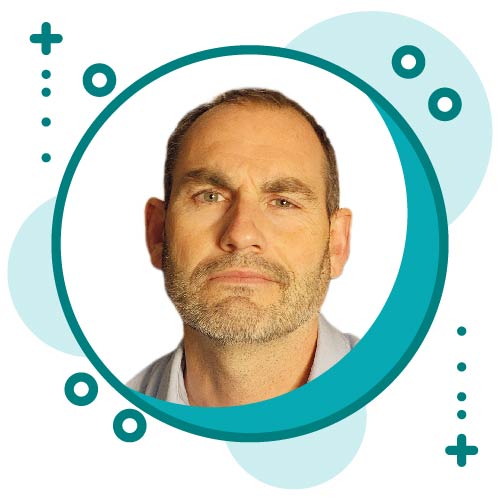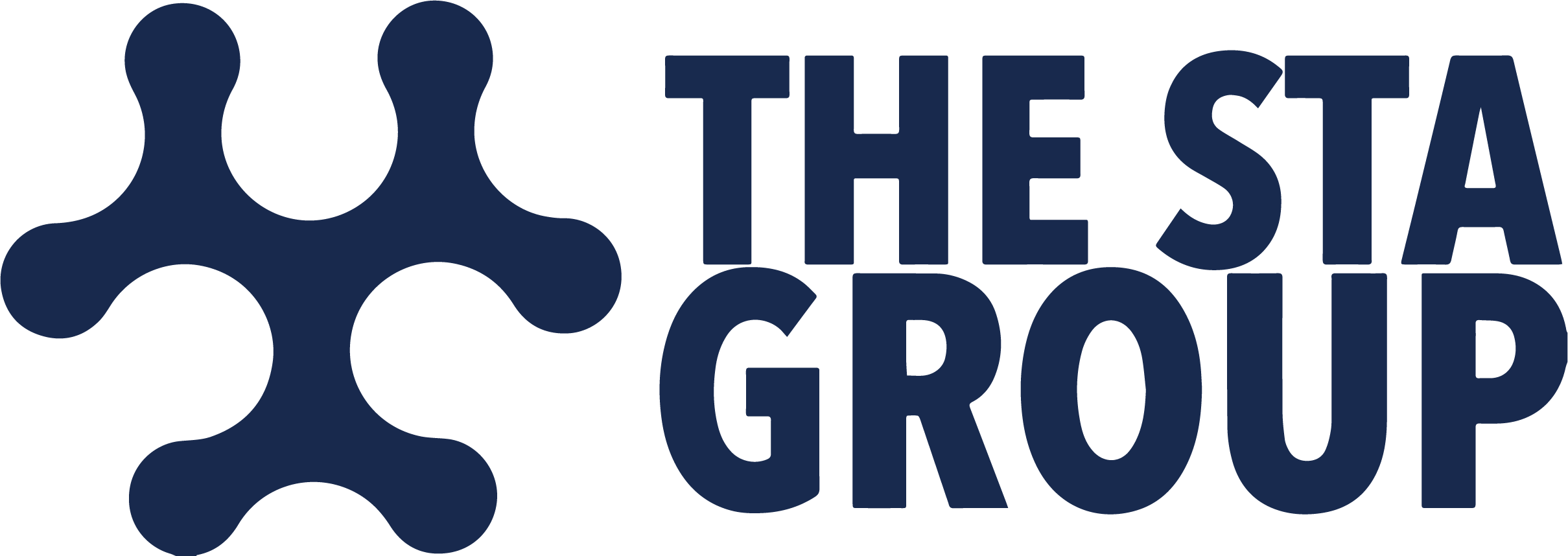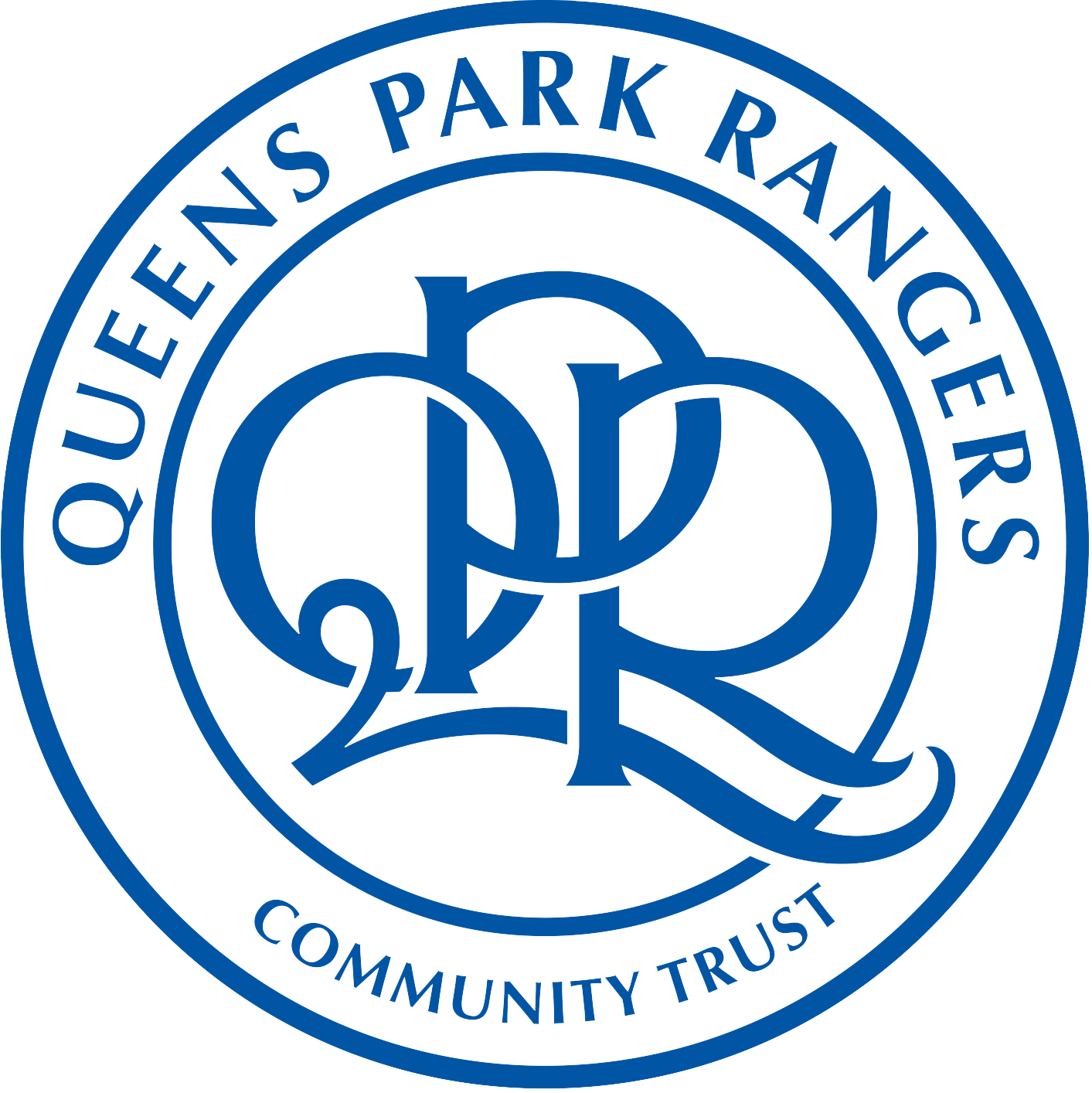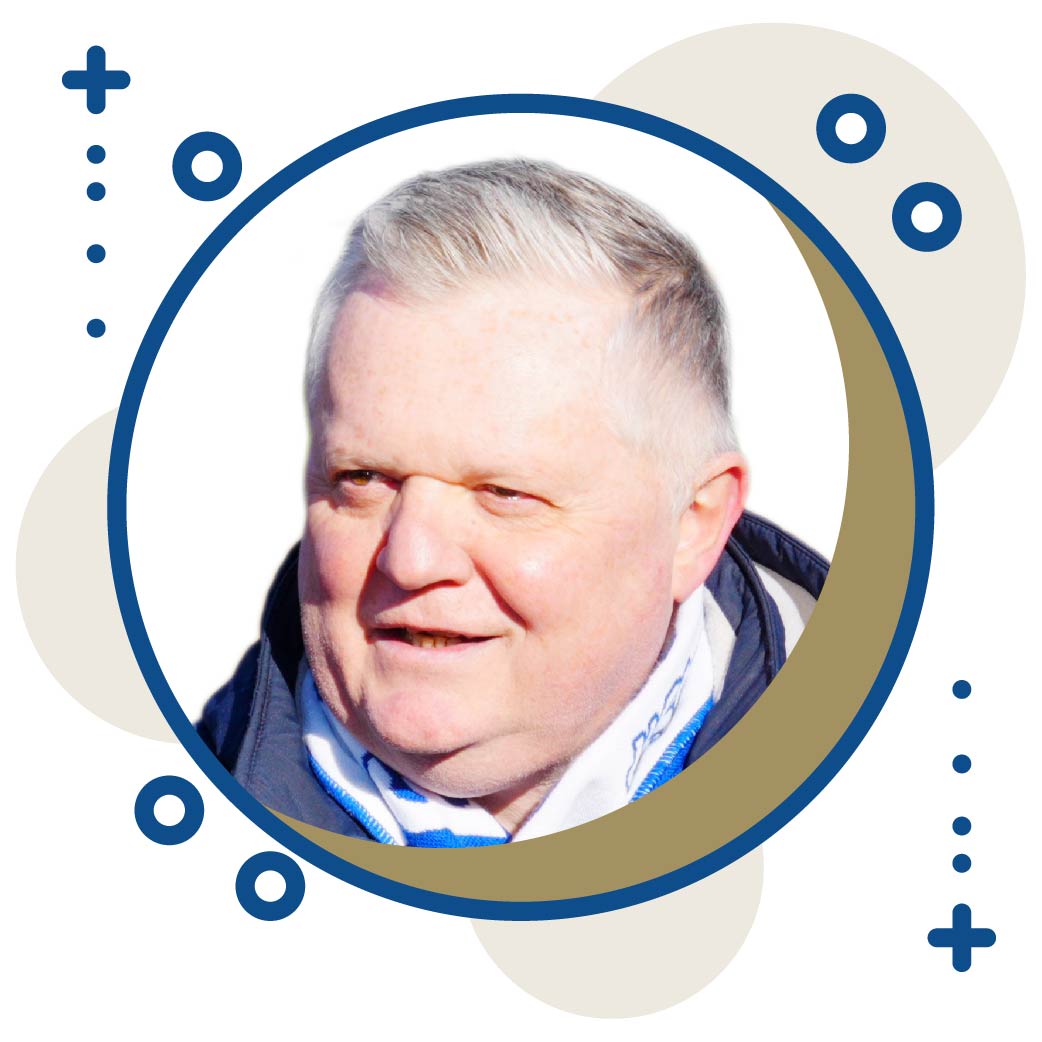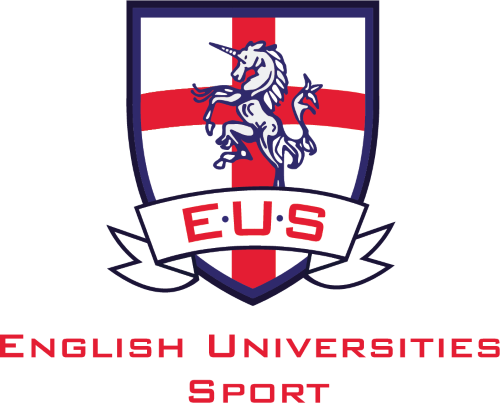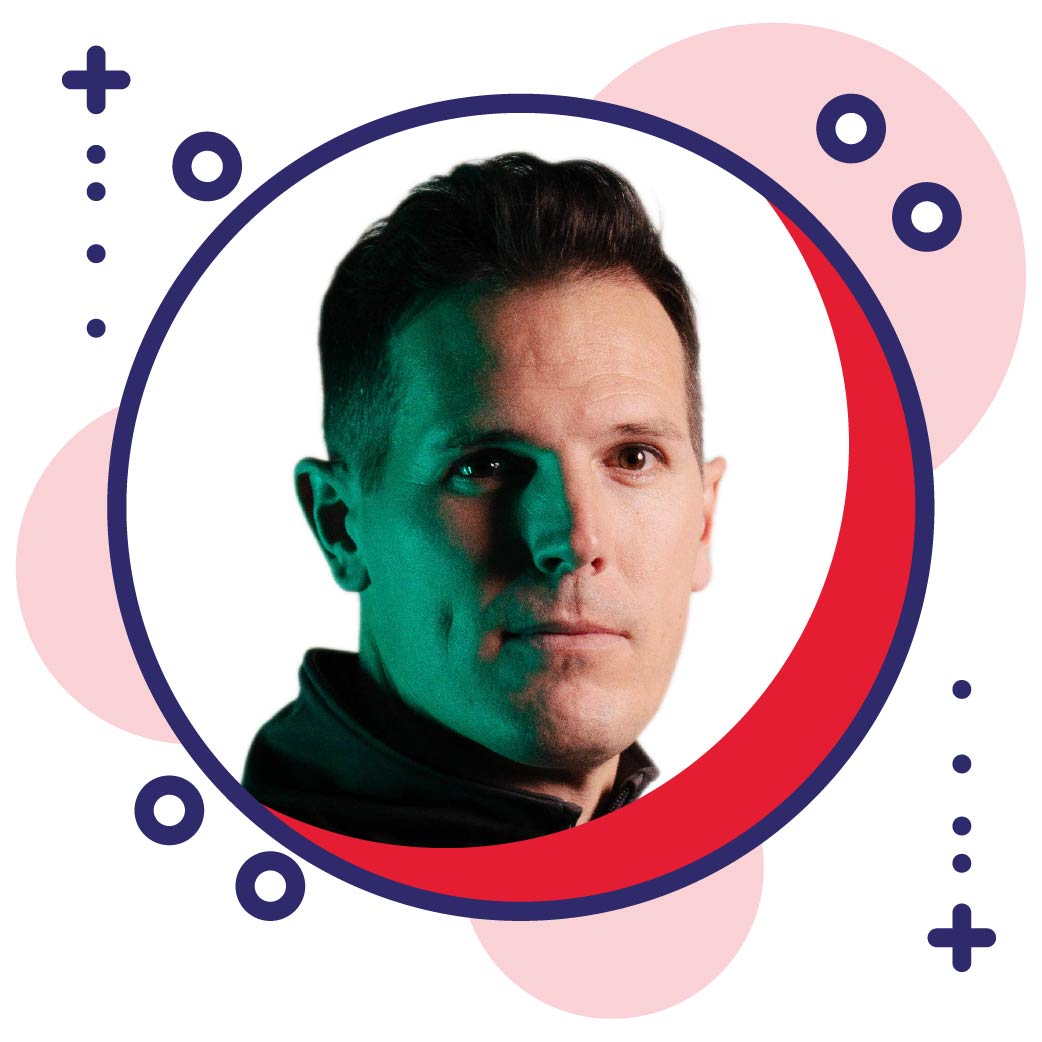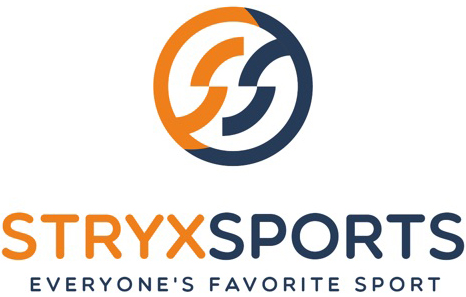Rob Brown 0:00
I think the advice I would give is to be open-minded because there’s not necessarily just one way to do something. There are often lots of alternatives.
James Moore 0:16
From Coordinate Sport, it’s the Drive Phase. A show about sports founders, leaders and experts, and the stories behind their business journeys. Our guest on this episode is Rob Brown, Director of ISF. Rob is on a mission to improve the employability of sports students and fast track them into their ideal careers. Having first-hand experience of what it takes to forge a successful career in the sports coaching industry, Rob has used this to develop a more straightforward option for school leavers. Partnering with London 2012 Gold Medalist Dame Jessica Ennis-Hill, Rob launched the Institute of Sporting Futures, giving young people a fast track into a sports coaching career. During the episode, Rob talks us through the program in detail, how it developed, and the long term global vision. We also hear how Jess became involved and how she stays engaged with the students. This impressive program really challenges young people passionate about sport and coaching to reach their potential and forge a successful career in the industry. In this episode, we hear about how sport shaped Rob’s development and educational choices and shows us there’s so much to learn from how building strong partnerships can positively impact the industry, as well as provide opportunities for young people.
Hey Rob, welcome. Director of ISF, Institute of Sporting Futures. Rob’s mission is to improve the employability of sports coaching students, fast track their opportunities in the industry, and get them into employment as quickly as possible. I’m really looking forward to this one. Rob and I know each other well, so hopefully, we’ll get on well in this interview. So thanks for your time, Rob.
Rob Brown 2:06
Thanks for having me on. I really appreciate it, James. It’s great to have the opportunity to share my mission with like-minded people and hopefully inspire some people to do the same.
James Moore 2:16
Definitely. I usually start from the beginning, get a little bit of background. You grew up in the northeast. Is that right? Do you want to tell us a bit more about your early life?
Rob Brown 2:27
Yeah, that’s right. I’m a Northeast lad, born in Northumberland. Just like most young people, I had aspirations of being top level at sport. I always played football and golf from a young age, all the way through to 16-18, where I played some semi-professional football up in Scotland for a little while. Then I went down the pathway to getting where I am now, I guess.
James Moore 2:54
What was your experience of sport and PE in school? You were obviously a naturally sporty person, but what was your experience like in primary school, would you say?
Rob Brown 3:04
On the whole, it was a positive one. As you said, because I’m passionate about sport, I suppose it was always a release for me. That was like the one or two hours of the week that I could really let loose, so PE in primary school was a good experience. But like everything, knowing what I know now, it’s one of those things that I’d like the opportunity to improve, given the chance.
James Moore 3:29
Yeah, definitely. Then in terms of your family, did you come from a sporty family or were you the exception?
Rob Brown 3:36
Yeah, I was the exception, although my brothers probably wouldn’t agree. Like most families, my dad has always been interested in sport, loved football, my younger brothers the same. But I guess we were all the same. We all played because we really loved it, not because we were going to make an impact on the big stage. But like I said, just an average family who loved their sport. My mum maybe not so much when she came along to watch football on a Sunday morning, absolutely freezing cold and wet.
James Moore 4:12
So what you’re saying is you’re the standout performer?
Rob Brown 4:15
Yeah, if my brothers and dad are listening, then yes.
James Moore 4:18
So from excelling in football and golf, I know you’ve got a great handicap in golf and Semi-Pro Football. What was your path from that into coaching? I guess we haven’t really touched on the academic side, so what were your next steps when you left school?
Rob Brown 4:37
Me being from a small town called Alnwick, up in the Northeast.
James Moore 4:43
I know where that is. That’s Harry Potter country, isn’t it?
Rob Brown 4:45
That’s right, yeah. I used to work in the castle where Harry Potter was filmed, but that’s a story for another day. But being from Alnwick, I was funnelled into a certain pathway because of the opportunities that were available to me. Where I was from in Alnwick, after finishing my GCSE’s, the only real option I had was to go onto A-Levels or go into an apprenticeship. But it would be in a different industry because there weren’t many apprenticeships available in the sport industry that I wanted to get involved in. Because if I wanted to go to another college, it was a case of a 30-mile trip daily. If it was one of those things, it was going to be less appealing. So it was always a case of finish GCSEs, go into A-Level PE, and then the next step was University. I moved to Leeds, went to the University in Leeds, and focused on sports coaching. I think we touched on it before, but I played a little bit of football when I was younger up in Scotland. And I guess it was that decision time, whether it was going to be one of those things that I could push forward to make a career of, or if I needed to think about something else. Coaching was that next step for me, and yeah, I could have probably still pursued being a player, but being a coach and still being involved in the industry was really important to me. So it was something I could continue that passion that I had in sport with.
James Moore 5:05
The University of Leeds, was it Leeds Beckett you went to?
Rob Brown 6:06
Yeah, it was Leeds Metropolitan at the time, or Leeds Beckett as it is now. I did a sports coaching degree.
James Moore 6:14
So the sports coaching, Leeds Beckett is well known for that. Do you think your degree program prepared you for a job in the industry? Looking back on it, how do you feel about that?
Rob Brown 6:30
I’m not sure. I think flipping the question around, if I was given my time again, would I do the same pathway knowing what I know now? Potentially not. Like you mentioned before, Leeds Beckett is really well known for its sports courses and the programs it delivers. But I think preparing me for the pathway that I’ve taken since University and the career I’ve gotten into, there’s probably better ways that you could get to where I am now and maybe get there a little bit quicker. Not to speak disrespectfully, with regards to Leeds, but I think one thing I would look for in a program is maybe a little bit more experience. Work experience wise at University, if you didn’t go out and find it yourself, it was always difficult. Many students on my course didn’t quite have that drive, so they never really got the experience. So really, you’re coming out with your degree, and that’s fantastic. But it doesn’t look great to any employers. It’s not enough to get you a full-time job.
James Moore 7:28
Something we hear is a bit of an issue across the industry in terms of University, you’ve got all the theory and academic side of things, but you might not have as much practical experience. But that’s University. You’re supposed to be learning off your own back, so maybe going out and finding the placement could be considered part of that.
Rob Brown 7:50
I think the industry-standard qualifications is another thing, coupled with the work experience. I was lucky in the fact that Leeds did offer the industry-standard qualifications. There was Level 1 in football, rugby, and cricket, which I did, and then there was an option to do a level 2, but it wasn’t mandatory. So if you didn’t have the drive to go out and do those, or if you didn’t have the money to fund it because that’s difficult for students, then you’re always going to miss out on that. So I guess you’re already a step behind when you finish university, to anyone who’s got those industry-standard qualifications or some sports coaching experience.
James Moore 8:27
So graduation from Leeds Beckett, was that 2007?
Rob Brown 8:35
Maybe 2006?
James Moore 8:37
Yeah, so from that point on, your pathway into coaching as a career, how did that work?
Rob Brown 8:47
So when I graduated, my partner at the time, now wife, was working over in Hull. So I moved over to Hull with her, and that’s where I’ve been ever since. The plan was to be here for a year, but Hull’s one of those places that when you’re here for a year, then you’re stuck here. But I’ve loved my time here. I worked at a factory to get money because obviously we had to live, and then I started to look for some sports coaching experience. I managed to get some coaching experience with the fantastic company called First Step Sports Group, which deliver PE in primary schools across the city. So I worked as a casual coach for them for a couple of years. Then I had to make a serious decision, whether that was something I wanted to make a career out of or whether I would have to look elsewhere. Luckily the company were really good to me. I managed to get into part-time and then full-time work. It’s been a great pathway for me and a fantastic learning experience, from working 4-5 hours a week to what I do now. It’s something I’m really proud of.
James Moore 9:51
Definitely, and would you say that’s a typical journey into how to get into the industry?
Rob Brown 9:59
Yeah, back then, I would say. There weren’t too many other pathways. People would usually do A-Levels and then go to University. But I don’t think it’s one of those careers you need to go to University for. If I had the chance to go back, that might be something I would consider. Especially with the cost of University now to what it was then, it wasn’t as expensive back then, so it wasn’t quite as big a decision.
James Moore 10:29
Definitely, and there are also those apprenticeship pathways now, which obviously weren’t there at the time. But I guess that leads us onto ISF, the Institute of Sporting Futures. I know we’ve touched on your journey, and I’m sure that’s fueled the program’s creation. So do you want to give us a little bit of background about how it came to be and what it is?
Rob Brown 10:55
Yeah, so I mentioned before my work with the First Step Sports group. We found it’s really difficult to find people in the industry who are either appropriately qualified or have enough experience to be employable, even coming off A-Levels or having a degree. So it’s a case of people finishing their degrees and then having to learn their trade, going out to get more qualifications. So what we did is we designed the Institute of Sporting Futures to try and combat that employment issue. We designed a program to couple work experience and industry-standard qualifications with a diploma, meaning that those students finishing 6th Form or A-Level equivalent were as far forward, if not further than someone finishing their degree three years later. So that’s why we designed the program, and that was the aim and the mission for it.
James Moore 11:49
Just so I get it right, is it after GCSEs they’d enrol onto your program? What’s the setup, is it based in the colleges or schools, and how would someone find out about it or even know that’s an option for them?
Rob Brown 12:04
Yeah, it’s like you said, so the Institute for Sporting Futures is a post 16 program that is based in secondary schools across the UK. Our main centre is in Sheffield, and our ambassador is Jessica Ennis-Hill, so that was the ideal city to start in.
James Moore 12:19
I know we’ll definitely touch on that in a little bit, how you got her involved.
Rob Brown 12:24
But yeah, so that’s the gist of it. People will come to us once they finish their GCSEs who are looking for a pathway into sports coach, or might even still be interested in performing sport but are looking for an alternate route into employment or further education.
James Moore 12:42
So looking at the program, someone’s going to be attracted to it because they want to be a sports coach. At 16, you don’t really know what it entails. You have probably been taught that you go to university, maybe even doing a bit of coaching in the community. I guess our listeners would be keen to understand how that would fit in with them. So obviously, our listeners are people in the industry now, either leading a team or company, employing coaches and developing coaches. From their point of view, how would that impact them? Is there a way they can get involved, or where do the students go after they finished the qualification?
Rob Brown 13:16
So let me talk you through the typical week of an ISF student. ISF students work two days a week on their Level 3 diploma in sport and physical activities. The other three days a week are made up of work placement. So the students are coupled with our employer partners, and they’ll go out and learn from the more experienced and senior coaches. Essentially, learning the trade from people who are already experts in the industry. So like I mentioned, we have quite a few employer partners in the city. For example, we’ve got lots of partners in Sheffield who are willing to take on our ISF students and give them that experience. Because they are having the same problems with recruitment as I mentioned earlier. Hiring apprentices means they can mould their employees, so they can already understand the company’s policies, procedures, and standards of delivery. When they’ve finished their program, they’re in a position to employ that young person. So really, it works both ways. There are some really positive exit routes for our students, but it’s also fantastic for our partners to have ready-made employees.
James Moore 14:28
So at the end of that two-year course, there’s that exit route straight into a job. Is there anything else someone could do after finishing, any other exit routes?
Rob Brown 14:41
Yeah, so we push four different exit routes for ISF, one being employment in the UK. We also have employment opportunities abroad. So at the end of the two years, we have a recruitment day where we invite some global recruiters to observe our coaches delivering mini sessions. Then they get the opportunity to go coach maybe a summer abroad in America, UAE, or China, for example. So that means for any students looking to broaden their horizons or get away and experience something a little different, then that’s a fantastic opportunity for them. There is also the opportunity to move onto University because the qualification gives UCAS points. Then finally, a slightly alternate route to the others, we have a partnership with a company called Future Pro USA who are interested in students who are particularly gifted in a specific sport. The program is extremely inclusive. You don’t have to be a particularly talented athlete, but if we have anyone who is a particularly talented athlete, Future Pro USA will guide them through that process to get a scholarship in America. They have Colleges and Universities in America that they partner with, so they’ll guide them through the application process, filming their clips, that kind of stuff.
James Moore 15:53
So there’s all that extra support in there. Before I go on, Dame Jessica Ennis-Hill is backing the ISF. I’m assuming she’s not a tutor on the course, as I know she must be busy, but how does she get engaged with the students on your team?
Rob Brown 15:57
Jess has been fantastic. She helped us develop the program as a whole at first, so we pitched her an idea, she came back with her ideas, and we developed it from there. She’s helped promote the program, so when we did our launch event down in Sheffield, Jess came down and engaged with the students in the school. We did some mini sessions, and she dropped in on a couple of classes. Then Jess is there throughout the year to support the students. A lot of it is online, because like you mentioned, she’s got a lot of commitments. She’s got her own businesses. She’s an entrepreneur. We have meet and greet Zoom meetings a bit like this, where the students can come on and do Q&As, and she’ll send out good luck messages. So it’s stuff like that. She’s always there for moral support.
James Moore 16:58
I was going to ask whether it has impacted you, with schools being closed for so long. With the Zoom meetings, is that out of necessity? Is it a change from what you would usually do?
Rob Brown 17:09
Yeah, we just have to embrace it, like everyone else has had to embrace it. Jess is a fantastic role model, and the students getting the opportunity to have a quick chat with her and asking her questions is a great opportunity for them. For example, just before GCSE results, we had a Zoom meeting with some of the kids, and they were asking her questions about how she dealt with pressure. Obviously, she’s competed at the Olympics, slightly different type of pressure, but she was talking about coping mechanisms, that kind of stuff. So it was a fantastic opportunity for the students to get that insight.
James Moore 17:38
Were you also going to talk about September there? How does Jess get involved in September or when the new students come on board?
Rob Brown 17:48
Yeah, so in September, we have a big welcome event because the plan for ISF is to have sites all over the UK. She comes down and welcomes new students into the program. We do some small sessions to get her involved in some of the classroom sessions, which helps the students settle in as it’s a familiar face, and she’s obviously a role model. It just gives them an idea of what’s to be expected of our ISF students over the next two years.
James Moore 18:18
Brilliant. So in terms of the post 16 market, I know there are alternate education programs with potentially different ways of doing things. What would you compare ISF to? I know it sounds like it’s really unique based on the employability side, but where would you be pitched otherwise?
Rob Brown 18:37
Yeah, I understand. Comparisons are difficult, because like you said, we are different. We’re a mix of academic qualifications and experience. I suppose you could compare it to an apprenticeship, just in a slightly different setting. Other programs that are similar to ours are often focused a lot on performance.
James Moore 19:04
So you’re talking about the football programs?
Rob Brown 19:07
Yeah, exactly. So you’re only really going to be able to get involved in those if you’re a particularly good footballer, rugby player, tennis player, gymnast, anything along those lines.
James Moore 19:16
That’s more like training to perform or play in the college leagues, etc.
Rob Brown 19:22
Exactly, whereas with the inclusivity of ISF, you don’t necessarily have to be a fantastic player to be a good coach.
James Moore 19:29
Yeah, 100%. Just on that one, I know I want to ask you a bit more about the jobs market, I suppose. What are some of the myths and misconceptions you see in the sports coaching industry as a whole? Or you might even get it from parents if they’re coming to send their child onto the program. They’re going to have some questions, as they obviously want to look out for the child’s future and make sure they’ve got those opportunities.
Rob Brown 20:00
Yeah, there are a few. As you mentioned before, often with post 16 education, parents are the ones you really have to convince. The kids are pretty easy to see the value in the program just for what it is.
James Moore 20:15
Yeah, I’d have to convince my parents that I could get a degree because that’s the traditional path, isn’t it? Go through A-Levels and get your degree, and that’s what they know.
Rob Brown 20:28
The first question I usually get from parents is what jobs are there available to people in sport. They usually don’t know anyone who’s got a job in sport, or they believe you have to be high level to get yourself a well-paid job in sport. Because that’s often really important to people, and I think that’s from naive eyes without looking at the full picture. There are 1000s of jobs, and they are ever-growing in the sports industry. Whether that be sport, fitness, coaching, or something along those lines. So with the ISF program, although we focus quite a lot on sports coaching, we do a lot of primary school PE coaching. But also with the diploma, you get a touch on all the other aspects. So the anatomy, physiology, and sports psychology, where jobs are abundant across the UK and abroad. Because, as you probably know yourself, the value of a UK education abroad is heightened somewhat.
James Moore 20:28
Yeah, and that’s keeps coming up on the podcast, the actual size of the market. With the sports coaching industry, a recent study put it at $12.3 billion globally and growing around 6% a year. So there is that opportunity there, and even people working in the industry probably don’t realise it’s that large. British talent and British culture, especially around sport, is really valued.
Rob Brown 21:50
Without sounding too negative, I think you have to look at the issues we have in the country, which are going to provide opportunities moving forward. So we have a real issue in this country with childhood obesity, for example. That, in turn, is going to provide opportunities to help those young people to battle that.
James Moore 22:11
You’ve taken my next question, as we’ve touched on this with a few other guests, the childhood obesity challenges we’re facing at the moment in the UK. What would your take on that be? How could we make a dent in that?
Rob Brown 22:25
I’m not going to sit here and tell you that I’m going to be able to fix childhood obesity. Many people have tried, and obviously, we’re not doing a fantastic job right now. We are trying, and I don’t think it’s going to be a quick fix. But one of the things I would say is I think it’s time we started to let the people who have a real passion and love for sports and physical activity take care of the delivery of PE. Because often PE, especially in primary schools, gets left to class teachers who might not necessarily have a keen interest in sport. So we need to let those people who’ve got a passion for helping people get fit. We need to start improving that aspect of the delivery of physical education, I would say.
James Moore 23:22
I don’t usually ask this, but in terms of the industry, since you’ve entered it, there’s been a lot of work done with the national governing bodies, improving the coaching at clubs, especially at the grassroots level. With all these types of opportunities, you can see the standard increasing. From when you started to now, what are the biggest differences you see from the industry as a whole?
Rob Brown 23:45
I think there’s a big difference, especially in opportunities. It’s difficult for me to gauge because I live in a completely different place from where I used to. I lived in a very rural area previously, and now I live in an urban area. So the opportunities are going to be a little bit greater in an urban area, I would imagine. But I think the increase in funding and the increase of facilities is one of the things that really strikes me. The number of new pitches we have and all the secondary schools being built as new facilities. It makes me a little bit jealous, looking back when we were playing on our muddy field, with our all-weather pitch that was barely all-weather. If it rained, you were still struggling because it was sand based.
James Moore 24:27
It’s definitely a better experience for kids at grassroots level now.
Rob Brown 24:34
Yeah, exactly. We need to start harnessing and using those facilities properly. Because now we’ve got the facilities, but the problem doesn’t seem to be going away. We need to look at what the real problem is. The facilities are there, and now we need to improve the delivery of physical activity, I would imagine.
James Moore 24:49
In terms of the coaching industry professionally, do you see a big difference in opportunities from when you first started as a casual coach to now?
Rob Brown 25:02
I think a lot of organisations have stepped up their game, there is an abundance of opportunities. I think you touched on it before the number of apprenticeships that there are available now. Back when I was 16-17, that would have been ideal for me, or something like that would have been a nice option to have at least. Now they’re everywhere, the government’s thrown tons of funding into apprenticeships so that route is becoming ever more available, which I think is fantastic for people interested in sports.
James Moore 25:29
We always try to give the listeners something to take away, and obviously, nothing is smooth sailing. We’ve got a massive challenge on our hands, in society in general, with what’s happening. What’s been your biggest challenges, specifically with this program trying to get it launched, or is it educating the parents?
Rob Brown 25:51
Yeah, if I’m honest, that’s probably it. Not necessarily just that, but we’ve had the same issues to deal with that everyone’s had to deal with. But I think convincing people that sport is a credible career choice. Convincing the students but, more importantly, convincing the parents that it’s credible. Like you said before, I think my parents back then would probably have supported me but would have asked a lot of questions if I decided to go down the routes that there are available now. But I think there are a couple of issues there, still a few misconceptions around a lack of jobs in sport when there really isn’t. So I think that’s one of the things that we are working on with our exit routes to provide opportunities and showcase what the sports industry has to offer.
James Moore 26:34
Just changing topics a little bit, more on your day to day operations business-wise. I don’t know if you have a specific approach to this or philosophy you live by, but one question our listeners may have is how do you build a successful team and what goes into that? How do you maintain it as well, so obviously, you built out your team of tutors and the rest of your employees? How do you keep that altogether or successfully manage it?
Rob Brown 27:03
Yeah, I think communication is extremely important. Keeping a motivated and happy team is all about keeping staff engaged, focused and giving them a goal to work towards. But then also having that open environment, so that if anyone has any issues, they can always address them with you. At ISF, we’re an open book. We like to discuss issues, and we have team meetings daily, especially during the pandemic. We had daily catchups to make sure we wouldn’t go insane, so we had that extra support network. So just being open, but also trying to keep focus. Keep everyone with a goal in mind. Having the mission of the organisation up on the wall is really important because it means that everyone can see that every day when they walk in, and they know what they’re working towards. They know that we’re not just doing this as an empty job. It’s something that we’re really striving towards achieving.
James Moore 28:10
How do you stay on top of your workload? Working with young people, 16-to-18-year-olds is probably not always the easiest thing. So how do you make sure you always have everything organised?
Rob Brown 28:25
It’s just one of those things that you develop as you work through your business. So I’ve got a notepad as long as your arm, and I use my calendar a lot. We also use our management software to make sure that we can keep on top of all our tasks. It helps us understand where we’re at, what stuff is prioritised right now, and what we’ve got coming up in the future. I think it’s important, because like you said, we’ve got so much going on. But also the stuff that we deal with is unpredictable in the day-to-day. Everything’s unpredictable right now obviously, but especially education. So we use that software quite a lot to make sure that everyone’s in the know, and we can make sure everything gets finished as it’s supposed to.
James Moore 29:06
Definitely, and I know speaking off the record earlier, you have really embraced technology. Especially for the learners and that kind of online portfolio. I guess that made it a lot easier for you when all the restrictions came in, or as they are now sitting in lockdown.
Rob Brown 29:23
Exactly that. It’s just one of those things. You have to embrace change sometimes, and overcoming challenges can provide the best results. We’ve had to develop our teaching methods to deliver online, and we’ve had to invest in an online portfolio so we can work from the office. But it makes it so much more accessible. Even when we’re out of the pandemic, I think we’ll probably stick to a lot of the things that we’ve picked up throughout the last six to eight months, just because it’s so much more accessible for everybody. We appreciate that everyone’s busy, and not everyone has the time. Being able to access the online training on the evening or at flexible times is just the way forward really.
James Moore 30:06
Definitely the way forward. Personal question, Rob. So on the Podcast, we’ve not got the video for everyone to see, but you’re a healthy man, in shape. How do you keep that up? I know you’ve got a young family, so time is limited. What is your daily routine or any habits you’ve got to stay at peak performance?
Rob Brown 30:29
I don’t know about peak performance, but I approach my home life the same I approach my work. Try and keep some structure, some routine. My wife and I have a young child, which is difficult to manage in itself. So making sure I set my alarm and get up at the same time every morning. Even my drive to work in the morning is 15 minutes to reflect. I mentioned before: I’ve got plenty of lists. I make sure I take my lunch around the same time. It just helps me keep that structure. It’s not always possible, but I guess it helps balance the home and work life. That was probably the most difficult thing for me through the pandemic, the fact that we didn’t have the structure of the office to come to. It was difficult separating family life from work life. So I think that’s really important to me because although work is a passion of mine, obviously you still need to be able to turn off and enjoy life at home with family.
James Moore 31:26
Yeah exactly, you want to have that focus on your family time, especially as your kids are growing up. A question I always ask on the Podcast is if you could go back in time, what piece of advice would you tell yourself?
Rob Brown 31:49
I think the advice I would give is to be open-minded because there’s not necessarily just one way to do something. There are often lots of alternatives. I guess it’s slightly hypocritical as I did the mainstream route, went to A-Level, University, got myself a job. That’s not necessarily the best pathway, and as we evolve over the years, it definitely changes. So yeah, I would be a little bit more open-minded to the different opportunities and looking out for other ways to gain experience.
James Moore 32:24
Yeah, I love that. You’ve always got to keep an open mind. Thanks so much for giving up your time. If our listeners want to get involved, so if they’re running a sport coaching business or working at college or sixth form, how would they get involved with ISF? Is there anything you’re actively searching for at the moment or recruiting for?
Rob Brown 32:51
Because the program is ever-growing, we’re always looking for new partners in lots of different areas. We’re always looking for new employer partners and sports coaching organisations who are looking to get involved and could offer some experience. We’re also looking for University partners or anyone who might have employment opportunities. So if anyone has any opportunities for young people to get involved in sport, we would love to hear from them and discuss how we could create that partnership. You can get in touch with me at info@isf7.org and let me know if you’d like to get involved. I’m sure there’s something we could do to get a partnership up and running. Because like I said, the future for young people in sport is really bright, and the more people embrace it is better.
James Moore 32:51
Brilliant. We’ll add your contact details in the show notes. Just in terms of host sites, I know you’re expanding the range, is that just for the UK at the moment, or are you interested in hearing from people outside of the UK who could potentially be partners?
Rob Brown 33:56
As I said, my 16-year-old self would tell you now that it’s important to keep an open mind. So although we are looking for UK partners, we are also keen to expand and look at the options for having partners in the UAE, China or America, anything along those lines. So for anyone listening who want to improve their school provision or think we could add to their school provision, by all means, get in touch because we’d love to hear from you.
James Moore 34:29
Fantastic, alright Rob, thanks for your time, and we’ll catch up again soon, I’m sure.
Rob Brown 34:36
Brilliant. Cheers!
James Moore 34:40
Thank you for listening to this week’s show. You can subscribe anywhere you get your podcasts. If you’d like to get in touch with us, you can write to us at drivephase.podcast@coordinatecloud, tweet us @coordinatesport or follow us on Instagram @coordinate_sport or on my account @james_ventures. This episode was produced by Nancy Kwamboka, with support from Claire Goodchild and Lola Small. And a special thanks to Rochelle. I am James Moore, and you’ve been listening to the Drive Phase from Coordinate Sport.
